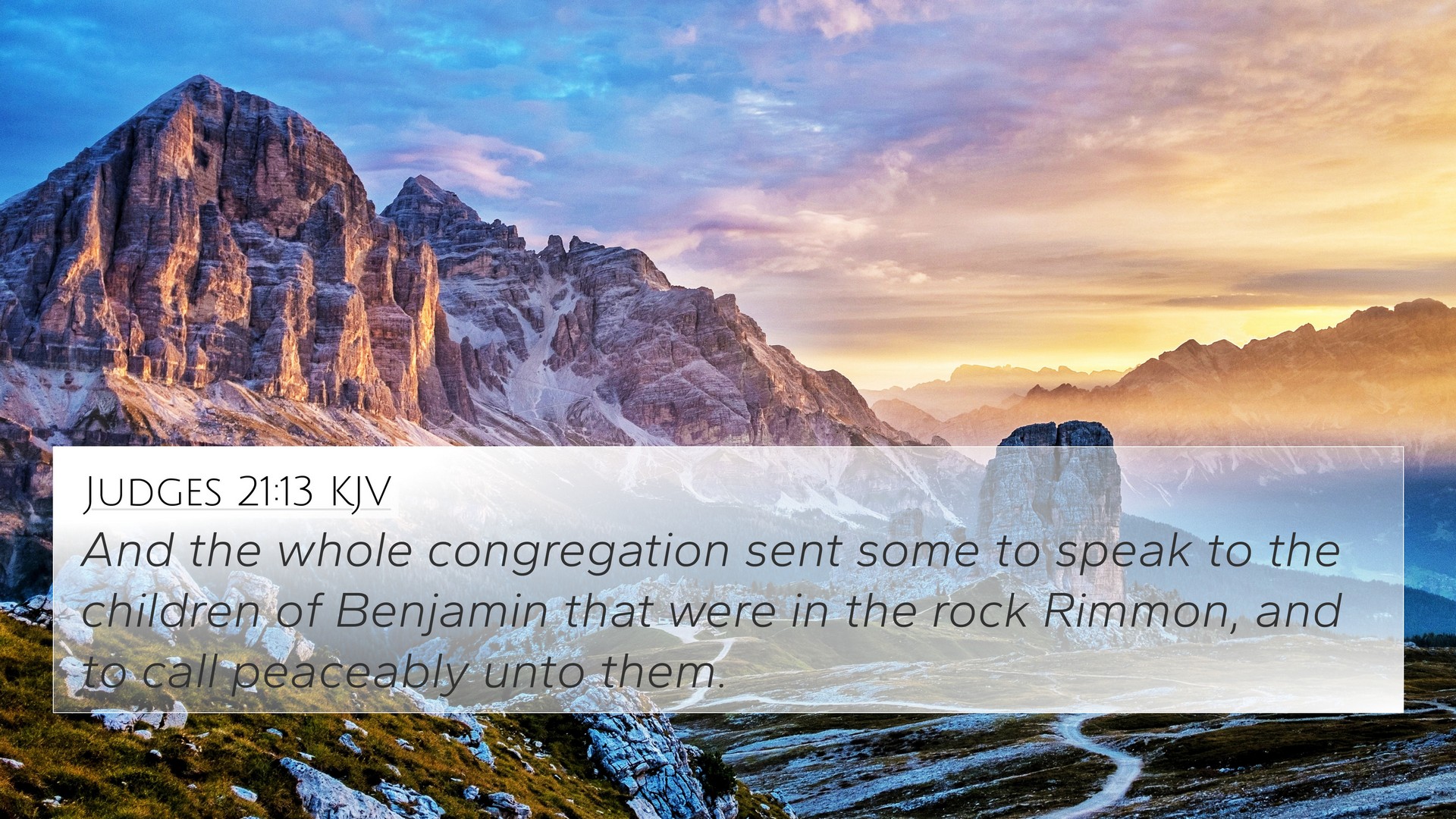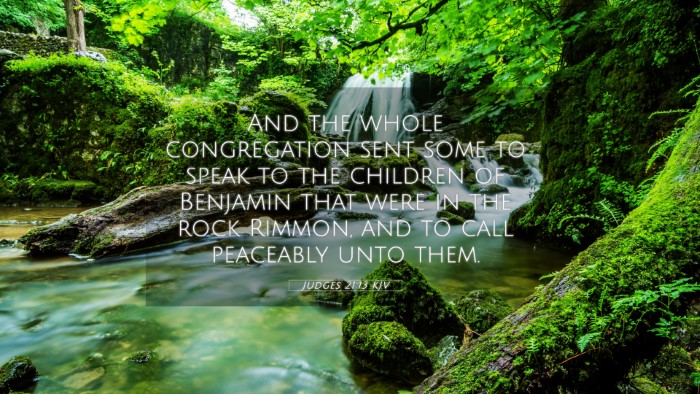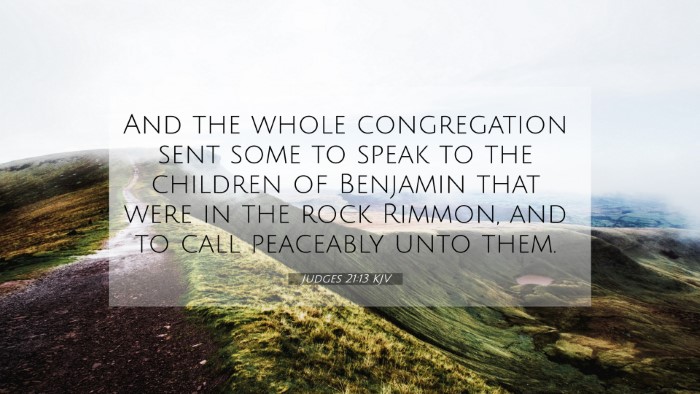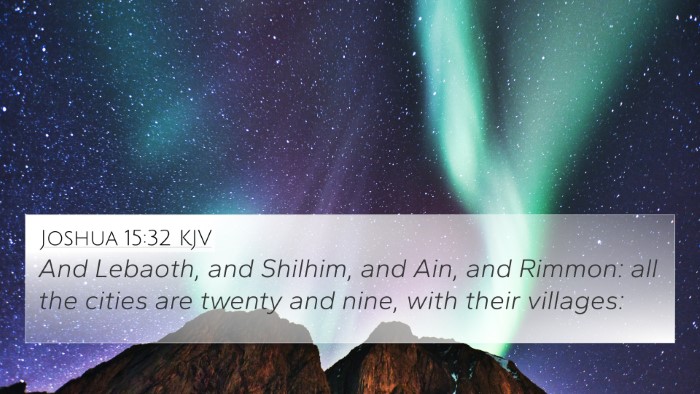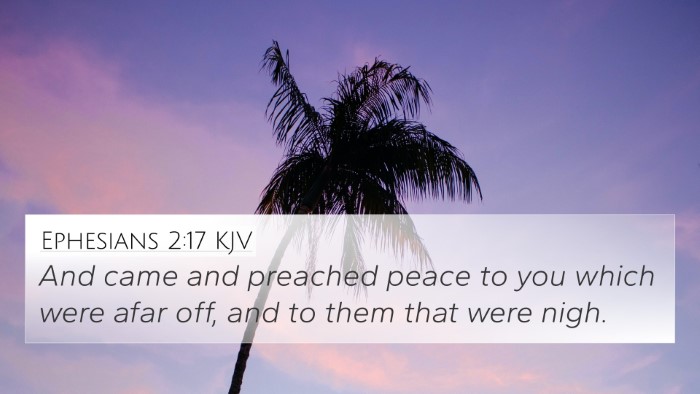Understanding Judges 21:13
Judges 21:13 recounts a pivotal moment during the conclusion of the Book of Judges. The context involves the aftermath of a civil war between the tribe of Benjamin and the other tribes of Israel. This verse symbolizes reconciliation efforts and the restoration of familial ties among the Israelites, demonstrating God’s enduring covenant with His people.
Verse Text
"And the whole congregation sent some of their brethren, the children of Benjamin, out of the city of Rimmon to call for peace unto them."
Commentary Insights
-
Matthew Henry's Commentary:
Henry highlights the desperation and dire consequences faced by the tribes of Israel due to the conflict. This verse signifies an earnest effort for peace, demonstrating the importance of unity among God's people. The willingness to reach out for peace underscores the gravity of the situation and the need for healing.
-
Albert Barnes' Notes:
Barnes stresses the significance of this action as a collective move towards restorative engagement. The act of sending representatives showcases a formal approach to mending relationships that had been shattered by recent violence. It reflects the broader biblical theme of seeking reconciliation and understanding when divisions occur.
-
Adam Clarke's Commentary:
Clarke provides deeper insights into the implications of the peace offering. His observations connect this moment to the broader narrative of the Israelites' journey through conflict, emphasizing the need for forgiveness and the restoration of community. This moment illustrates God's mercy and the possibility of redemption even after severe strife.
Thematic Connections
Judges 21:13 serves as a compelling anchor for several thematic connections throughout the Bible. These themes resonate with God's covenantal relationship with His people, the pursuit of peace, and the importance of community. Below are relevant Biblical cross-references which illuminate these themes:
- Romans 12:18: "If it be possible, as much as lieth in you, live peaceably with all men."
- Matthew 5:9: "Blessed are the peacemakers: for they shall be called the children of God."
- 2 Corinthians 5:18-19: "And all things are of God, who hath reconciled us to himself by Jesus Christ..."
- Colossians 3:13: "Forbearing one another, and forgiving one another..."
- James 3:18: "And the fruit of righteousness is sown in peace of them that make peace."
- Psalm 34:14: "Depart from evil, and do good; seek peace, and pursue it."
- Ephesians 4:3: "Endeavoring to keep the unity of the Spirit in the bond of peace."
- Proverbs 16:7: "When a man's ways please the Lord, he maketh even his enemies to be at peace with him."
- Matthew 18:15: "Moreover if thy brother shall trespass against thee, go and tell him his fault..."
- Luke 19:10: "For the Son of man is come to seek and to save that which was lost."
Conclusion
Judges 21:13 encapsulates the essence of reconciliation and the divine call for peace within the community of believers. Understanding this verse through various biblical commentaries reveals not only its immediate historical context but also its significant spiritual implications. Through linking Bible scriptures, this verse opens avenues for deeper explorations into themes of unity, forgiveness, and restoration that permeate both the Old and New Testaments.
Additional Study Tools
For those looking to delve deeper into the connections between Bible verses, several tools and resources are available:
- Tools for Bible cross-referencing
- Bible concordance
- Bible cross-reference guide
- Cross-reference Bible study
- How to use Bible cross-references
- Bible cross-reference system
- Cross-referencing Bible study methods
- Bible reference resources
- Bible chain references
- Comprehensive Bible cross-reference materials
Key Takeaways
Judges 21:13 not only prompts individuals to reflect on the significance of making peace but also serves as a reminder of the Biblical call to live in harmony. Engaging in comparative Bible verse analysis can enhance one’s understanding of scriptural cross-referencing and inter-Biblical dialogue, allowing believers to navigate their faith journey with wisdom and compassion.
